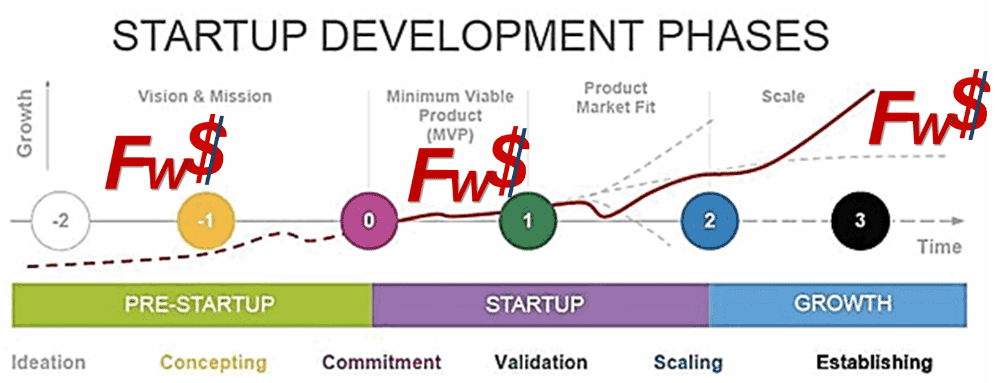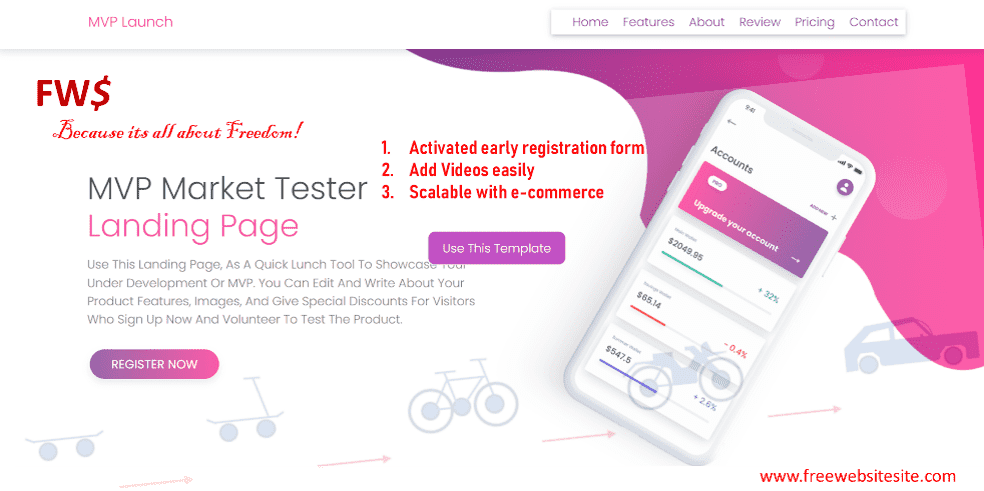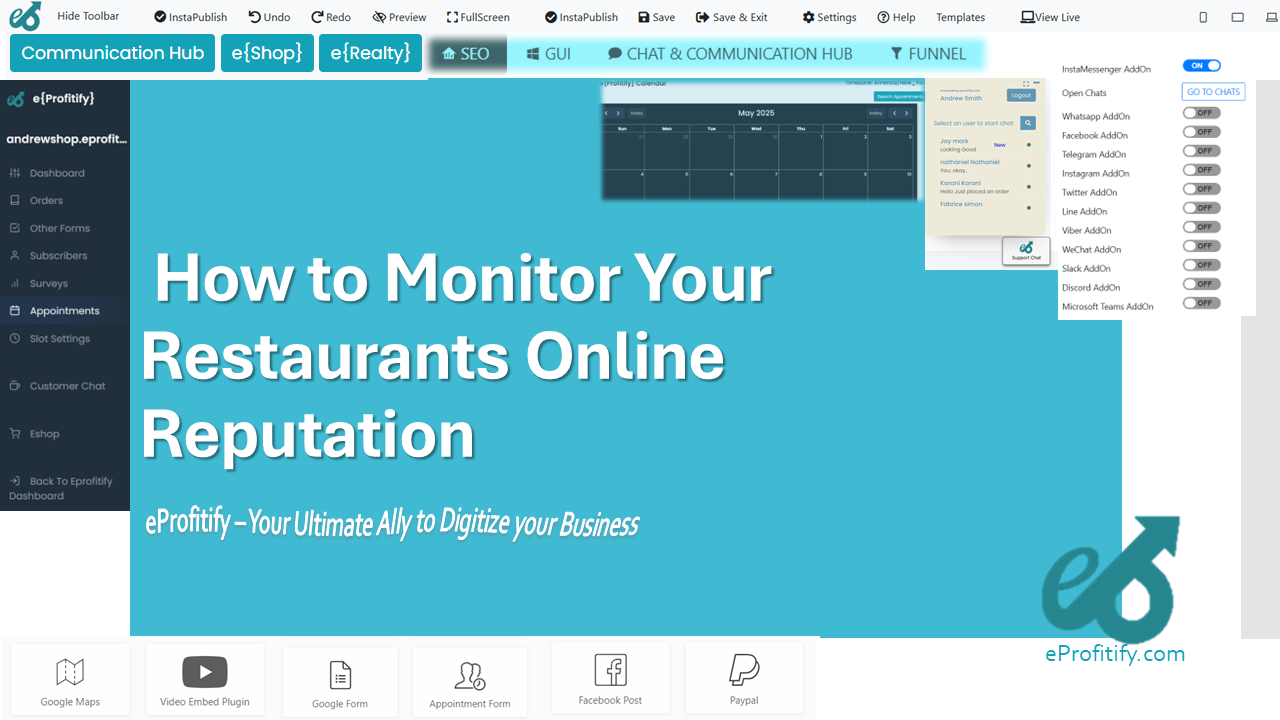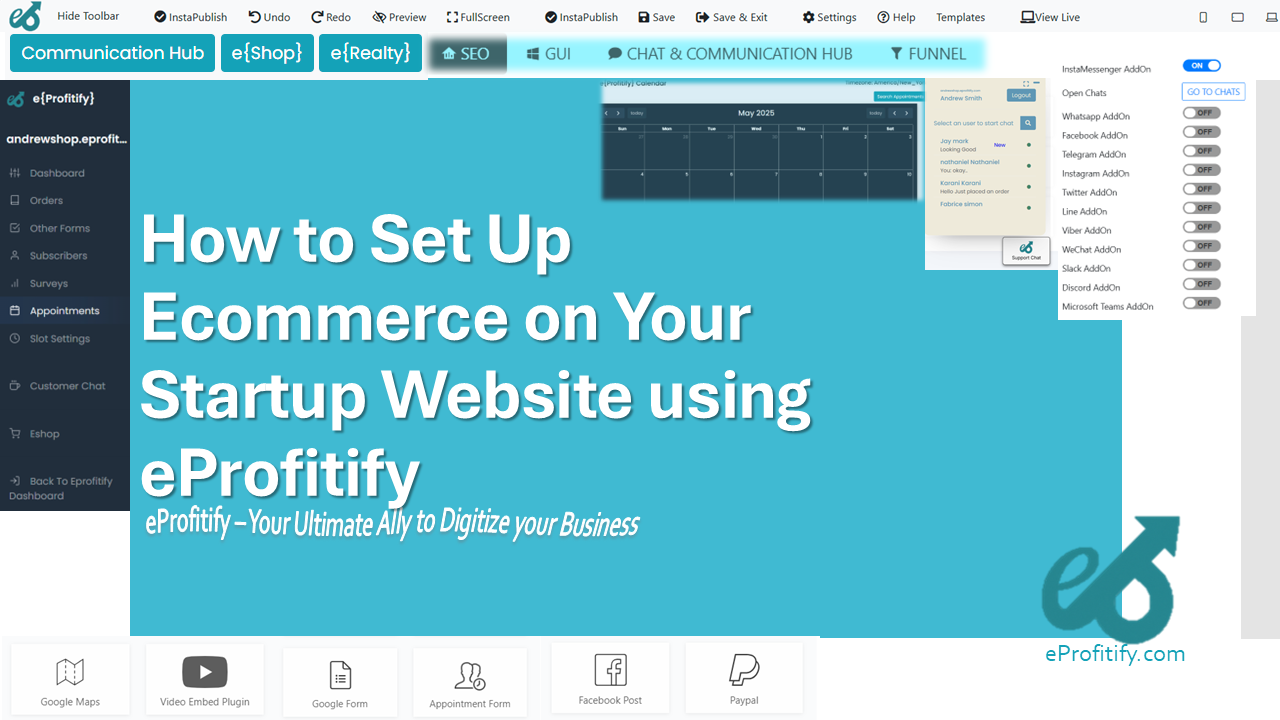Tools for Tracking Local SEO Performance
The Ultimate Guide to Tools for Tracking Local SEO Performance
In today’s digital-first landscape, local SEO is a game-changer for businesses aiming to attract customers in their geographic area. With 46% of all Google searches seeking local information (Google), optimizing for local search isn’t optional—it’s essential. However, visibility alone isn’t enough. To stay competitive, businesses must track their local SEO performance meticulously. This guide explores key metrics, top tools for monitoring success, and actionable insights—including how eProfitify, a leading website publishing and management platform, empowers businesses to streamline operations while enhancing their local SEO strategy.
Why Track Local SEO Performance?
Local SEO drives foot traffic, boosts online engagement, and builds credibility. Without tracking, businesses risk:
- Losing visibility to competitors.
- Missing opportunities to improve customer experience.
- Wasting budgets on ineffective strategies.
Key statistic: Businesses with complete Google My Business (GMB) profiles are 70% more likely to attract local customers (Moz). By measuring performance, brands can refine tactics, capitalize on trends, and maximize ROI.
6 Key Metrics to Track for Local SEO
-
Google My Business (GMB) Insights
Track profile views, searches, and actions (calls, website clicks, directions).
Stat: 64% of consumers use GMB to find contact details (BrightLocal). -
Local Keyword Rankings
Monitor rankings for location-specific keywords (e.g., “best coffee shop in Chicago”).
Stat: 76% of local searches result in a store visit within 24 hours (HubSpot). -
Online Reviews and Ratings
Analyze volume, sentiment, and response rates.
Stat: 88% of consumers trust online reviews as much as personal recommendations (BrightLocal). -
Localized Website Traffic
Measure traffic from local IP addresses and behavior metrics (bounce rate, time on site). -
Citation Accuracy
Ensure consistency of business name, address, and phone number (NAP) across directories.
Stat: Inconsistent citations lead to a 25% drop in local rankings (Moz). -
Click-Through Rate (CTR) from Local Packs
Track how often your GMB listing appears in the local 3-pack and drives clicks.
Top Tools for Tracking Local SEO
1. Google My Business Insights
- Pros: Free, integrates with Google Analytics.
- Cons: Limited competitive benchmarking.
2. SEMrush
- Track local keywords, audit citations, and analyze competitors.
- Stat: 70% of SEMrush users report improved keyword rankings within 3 months.
3. BrightLocal
- Specializes in citation audits, review monitoring, and local rank tracking.
4. Ahrefs
- Powerful for backlink analysis and keyword tracking.
5. Moz Local
- Automates citation management and scans for inconsistencies.
eProfitify: A Leading All-in-One Solution for Local SEO and Beyond
While standalone tools excel in specific areas, eProfitify stands out by combining local SEO optimization with comprehensive business management features, making it ideal for small to mid-sized businesses. Here’s how it elevates local SEO efforts:
-
Local SEO Analytics Dashboard
Track GMB performance, local keywords, and reviews in one place.
Example: Automatically syncs review data from Google, Yelp, and Facebook to monitor sentiment trends. -
Instant Messaging and CRM Integration
Engage customers in real-time via chatbots and organize customer data for personalized follow-ups.
Stat: Businesses using CRM tools see a 29% increase in sales (Salesforce). -
Appointment Management System
Streamline bookings through a centralized calendar, reducing no-shows and improving service accessibility. -
Ecommerce Integration
Sell products/services locally with built-in inventory management and geo-targeted promotions. -
Citation Builder
Ensure NAP consistency across 50+ directories automatically.
Why it works: By unifying SEO tracking with operational tools, eProfitify eliminates silos, saving time and enhancing customer experience—a critical ranking factor.
The Role of Statistics in Local SEO Strategy
Data-driven decisions are key to outperforming competitors. Consider these insights:
- 78% of local mobile searches result in offline purchases (Search Engine Land).
- Businesses responding to reviews see 33% more revenue (Harvard Business Review).
Tools like eProfitify turn these stats into actionable strategies. For instance, its CRM can trigger review requests post-purchase, boosting review volume and engagement.
Conclusion
Tracking local SEO performance is non-negotiable for businesses targeting nearby customers. While specialized tools like SEMrush and Moz Local offer granular insights, eProfitify stands apart by integrating SEO analytics with features like CRM, appointment scheduling, and ecommerce—creating a unified ecosystem for growth.
By leveraging data and all-in-one platforms, businesses can dominate local search, foster customer loyalty, and drive sustainable growth in 2023 and beyond.
Ready to supercharge your local SEO? Explore tools like eProfitify to simplify tracking, enhance visibility, and unlock your business’s full potential.








